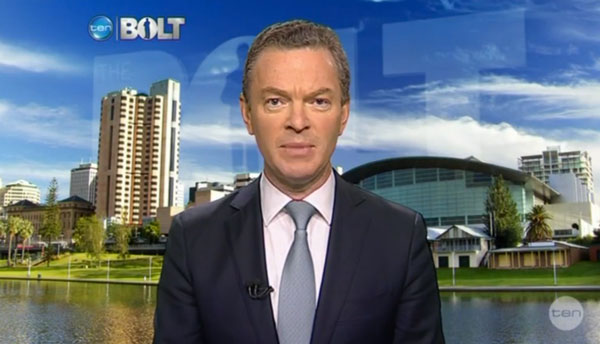Where to next for universities in Australia?
On Tuesday, the federal government’s higher education reforms were defeated, after they were voted down by the Senate. This is the second time Education Minister Christopher Pyne has attempted to deregulate university fees. For the second time, he failed.
Few have applauded Pyne’s performance. “I’ve fixed it,” Pyne told David Speers in a bizarre interview before his bill went down. “I’m a fixer.” What he meant was that he had removed all the things that the Senate was supposedly worried about – except university fee deregulation itself.
It turns out that Minister Pyne has not fixed it. The Senate voted against the bill because it opposed deregulation, and the much higher fees that universities would inevitably charge should it succeed.
Reaction from the university sector was a mixture of public regret and quiet celebration. While the management of elite universities saw fee deregulation as a ticket to lucrative new revenue streams, most academics and students opposed deregulation on equity grounds.
The failure of the bill means that universities don’t get their ticket to ride. But they don’t get the big 20 per cent cut to government funding per student either. And the current system of open, “demand-driven” enrolments stays: universities can continue to enroll as many students as they like, albeit at tuition fees set by the government.
For the Abbott government, this is yet another self-inflicted political disaster. The Coalition did not need to make deregulating university fees a central issue of its first term. Indeed, it told voters before the election it would leave universities alone. The first time anyone heard about the apparently urgent crisis in university funding was on budget night last year.
The idea that our universities are in crisis is one of the most dishonest aspects of the entire debate. The most recent review of Australia’s university system, chaired by Denise Bradley in 2008, found that our universities perform well by international standards, albeit with room for improvement.
Australia has at least seven universities ranked in the world’s top 100, but the real strength of the system may be at the bottom end. The high quality of tertiary education delivered by some of our lesser-ranked unis means that even students attending a lower-tier institution have a good chance to graduate with an expanded mind and enhanced job prospects.
Nor is there truly a funding crisis. In the 2014 budget, the federal government allocated roughly $15.9 billion for universities, and $14.3 billion for secondary schools. Most of the schools funding went straight to non-government schools, with far fewer checks and balances than apply to universities. Yet we never hear any doomsday rhetoric from this government about a crisis in funding for private schools.

The truly bizarre aspect of the universities debate is that all the evidence shows that, in the long term, the budget actually benefits from university funding. University graduates have much higher lifetime earnings than non-graduates, and therefore pay more income tax over their working lives. They are also generally more productive and creative than non-graduates, improving Australia’s long-run productivity. This too helps Australia’s economy grow, and keeps our tax base sustainable.
Much of the debate about deregulation has centred around these so-called private benefits to graduates, in terms of their future higher wages. But there has been next to no discussion of the public benefits of a better-educated and more enlightened citizenry.
Worse, the media has largely swallowed the line being fed to them by elite vice-chancellors – that Australian universities will fail to compete unless they can charge students whatever they want. There is scant evidence for this proposition globally, with many of the world’s best universities operating under a fully public system that includes price caps – not to mention centuries of public funding.
If higher prices always led to better educational outcomes, higher education policy would be a straightforward affair. But, as the US system shows, a generation of galloping inflation in tuition fees has not led to lower drop-out rates or a better standard of graduate.
There are good reasons for this. Higher education is far from a competitive, well-functioning market. Like healthcare, it suffers from many rigidities and asymmetries that disempower its so-called “customers”. In the most lurid example, for-profit universities have been amongst the worst performers in the American system.
University students are mainly young adults leaving school, with no experience attending a tertiary institution and often with only a hazy idea of what they want to do with their lives. The deciding factor in choosing an institution may have more to do with lush amenities and impressive leisure facilities than the quality of the faculty or their course’s graduation rate.
Even if prospective students were rigorously attempting to choose the best course, information about critical factors like teaching quality and staff-student ratios is either unreliable or simply not available.
That hasn’t stopped many from lamenting the failure of deregulation as a death-knell for public policy reform. The Australian’s Paul Kelly penned an almost hysterical article today, in which he decried “a failure in Australia’s political -system born of a cultural and structural malaise”.
But as Gavin Moodie countered in The Conversation, Pyne never articulated an argument for reform in the first place. Laments about the death of policy reform, Moodie wrote, were simply “blaming the public for botched advocacy of incomplete and flawed policies”.
A more honest discussion about university policy would admit that Australia’s university system is not in crisis, and that there are compelling reasons to keep the already high tuition fee caps in place. The public seems to realise this, even if Pyne and his dwindling band of supporters don’t.
Indeed, in opposing deregulation, cross-benchers like Queensland’s Glenn Lazarus seem much closer to the prevailing public mood. In setting out his reasons for voting no, the former rugby league star openly cited equity as his concern.
“Australia will be well on its way to an Americanised system where only the wealthy get ahead and the poor are laden with debt or simply just left behind,” Lazarus wrote. Labor’s Kim Carr has made similar points.
Carr and Lazarus see what Pyne can’t: that deregulating university fees will hike up the price of opportunity itself. Making universities a winner-takes-all system kicks away one of the few opportunities for poorer Australians to improve their life circumstances and access a fuller and richer life of the mind.
If ordinary voters oppose deregulation, perhaps it is because they see the growing inequalities of Australian society more clearly than highly-paid vice-chancellors or Grattan Institute analysts.
Good riddance to the Abbott government’s “reforms”. They were bad policy from the outset, and deserved to be defeated.
Donate To New Matilda
New Matilda is a small, independent media outlet. We survive through reader contributions, and never losing a lawsuit. If you got something from this article, giving something back helps us to continue speaking truth to power. Every little bit counts.



